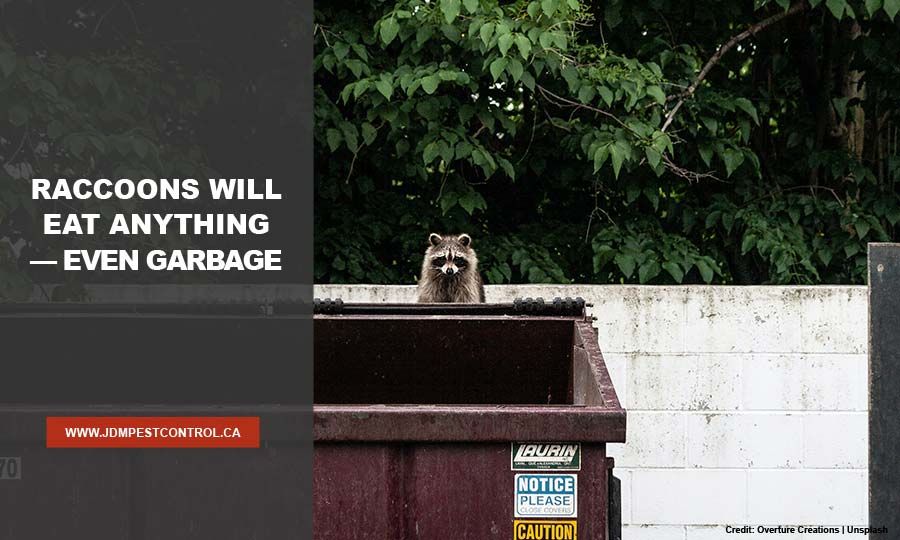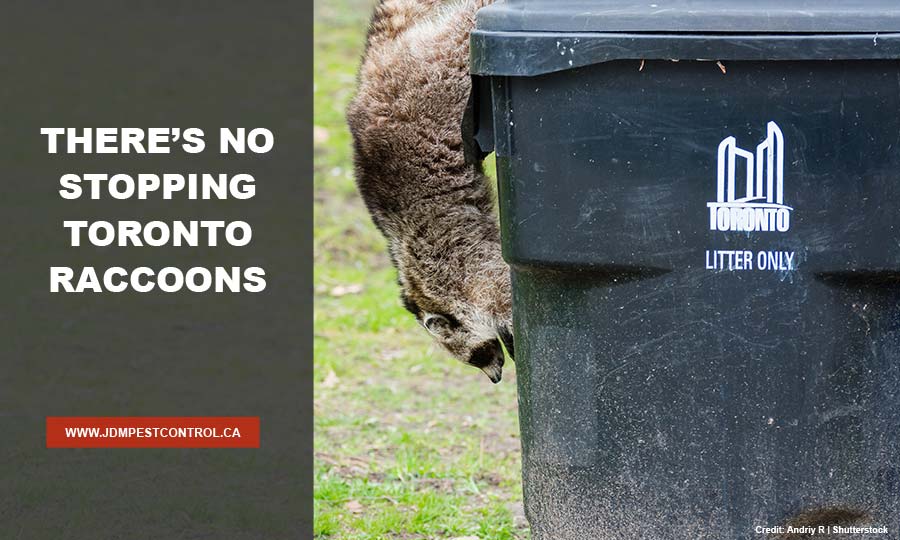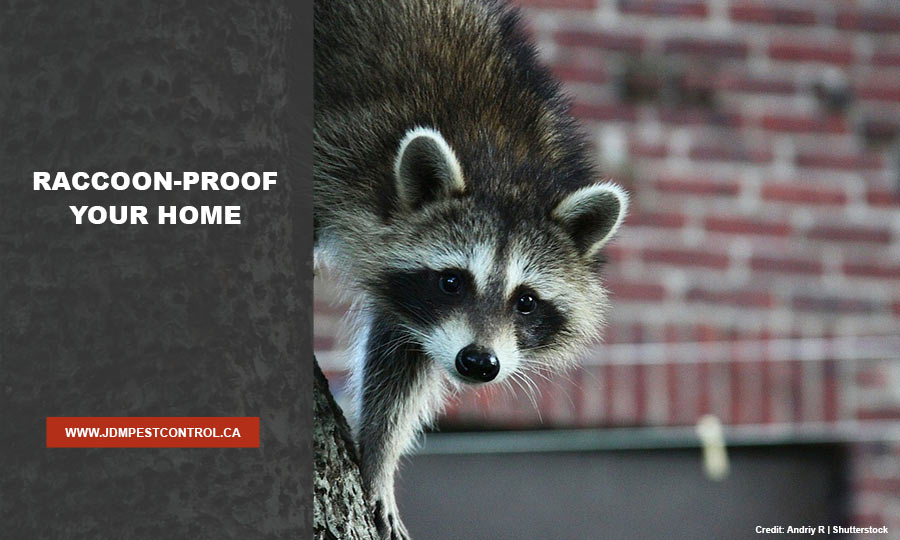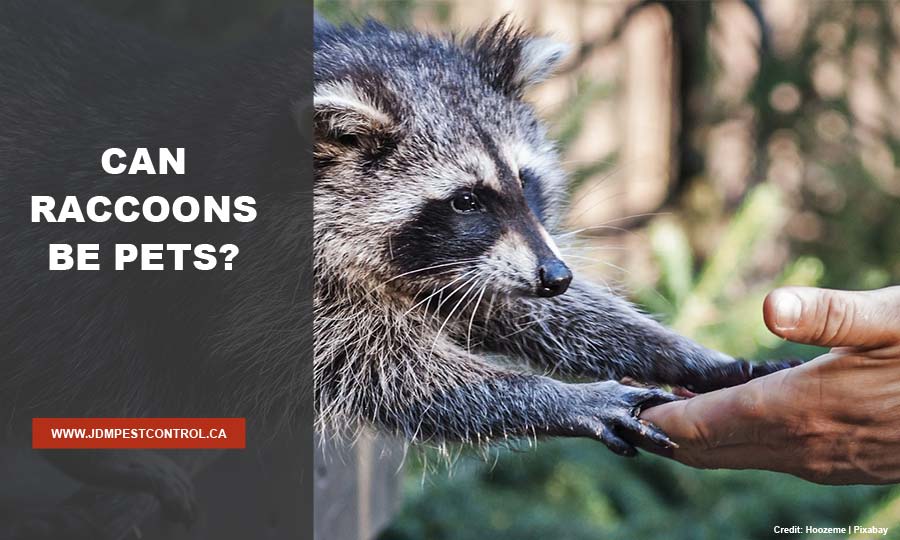Raccoons may look cute and cuddly, but they do not make good pets. There have been some attempts to domesticate raccoons over the years, but the process of domesticating these animals is difficult and not always successful. A pet raccoon in Canada is hard to care for and not a recommended undertaking.
Reasons Raccoons Can’t Be Pets
Here are several reasons raccoons make horrible pets:

- Illegal as Pets – Are keeping raccoons as pets legal in Canada? No. They are on the prohibited animals list. Taking them from the wild and forcing them to live in confinement would be unethical and get you into trouble with the law.
- Wild Animals – Raccoons have lived in the wild all their lives. They do not easily lose their natural wild instincts. Even when bred in captivity for years, raccoons continue to display instinctual behaviour and can become increasingly aggressive.
- Not Social Animals – They are difficult to domesticate because they are not social animals. Unlike dogs and cats, which form close bonds with humans, raccoons do not form the same emotional connection with people even if they are bred and raised in homes. They are hard-wired to be independent and roam the wild on their own.
- Aggressive and Destructive – Raccoons are not like dogs that love getting cuddles. They will attack humans if they feel stressed, threatened, or upset.
- Curious Foragers – Raccoons love to wander around and explore their surroundings to search for food and shelter. They only remain in one place to hibernate, mate, or raise their offspring. Keeping them indoors is against their nature, no matter how comfortable a home you provide.

- Difficult to Train – Although raccoons are smart and have flawless motor skills using their dexterous little paws, they are more focused on self-preservation. Any attempts to train and teach them the trick is against their nature and will likely be unsuccessful.
- Disease Carrier – Raccoons are a health risk to you, your family, and other pets. They carry infectious diseases and zoonotic parasites, like roundworms, which can infect humans. Roundworm egg spores are extremely light and can become airborne, which puts you at risk of breathing them in and becoming infected.
- Mischievous Nature – Raccoons have the cunning ability to use their long-fingered paws to open doors, unscrew lids, open trash bin covers, and do other tasks. Keeping them out of areas that they should not get into would be difficult. If left unsupervised, they can open your cupboard, steal food from your refrigerator, and empty jars and drawers.
- Nocturnal Creatures – Because raccoons are most active at night, keeping them as pets can lead to sleepless nights.
While raccoons look adorable with their bandit-like mask, they are better off in the wild. They are not the cute and cuddly furry friends that you are hoping for. Keeping raccoons in your home as pets can put you at risk of bites, serious diseases, and damage to property.
More Problems With Raccoons

Also known as trash pandas, raccoons are a real problem in Toronto. Dubbed as the raccoon capital of the world, Toronto has more than 100,000 raccoons. While some of these creatures live in the wild, others thrive in the lush tree-lined areas of the city. Over the years, raccoons have begun to reproduce relentlessly, infiltrating urban life, flocking into neighbourhoods and backyards in search of food.
Also, raccoons can squeeze themselves through small openings. There have been sightings of these animals wriggling and contorting their bodies to escape pest control efforts. As long as their skull can get through through the opening, they can easily squeeze the rest of their body in.
While there is no denying their cuteness, people must always take extra caution if they come across a raccoon. In 2020 and 2021, there has been a 62% increase in raccoon-related attacks in Toronto compared to the two preceding years.
Toronto has been fighting its trash panda problem for years. The main factor for this is that they will eat almost everything. Raccoons in the wild typically consume grub and berries. However, their diet has slowly morphed to include human food. Raccoons are flocking into neighbourhoods and backyards to scavenge trash bins. They have developed an insatiable appetite for leftover pizza, overripe fruits, and everything else thrown out in the trash. They will exploit anything because they are intelligent creatures with talented paws.
Toronto’s War Against Raccoons

Frustrated with the raccoon invasion in the city, the Toronto government commenced a CA$31 million effort to engineer a raccoon-proof bin, a tougher garbage bin container with a hand-turned locking mechanism. This marvel of ergonomic design was believed to be the ultimate solution to the growing raccoon problems.
Unfortunately, it didn’t take long for the smartest of the species to figure out how to open these raccoon-proof bins. This didn’t come as a surprise to many, however. Although raccoons do not have thumbs, they have nimble paws. A 1900 research even showed how raccoons have cracked 11 out of 13 locks, including latches, buttons, bolts, hooks, and levers, to open a box that contained food inside.
Keeping Raccoons Away From Your Home

While purposefully keeping raccoons as pets is illegal in Canada, this doesn’t stop them from trying to sneak into your property or home. Unfortunately, raccoon problems are not only limited to them rummaging through garbage bins or causing property damage, they can also put you at risk of diseases. Additionally, female raccoons can also build nesting sites inside a building, potentially bringing a host of parasites into your home.
However, there are certain ways you can do to control the problem:
- Use a heavy-weight trash can with a secured lid.
- Do not leave pet food outdoors. Bring it inside before nightfall.
- Keep an eye on your bird feeders. Use a shepherd’s hook or simply bring your feeders inside at night.
- Clean up fruits and nuts that fall off the trees.
- Do not intentionally feed raccoons.
After eliminating all food sources, the next thing to do is to reduce the raccoons’ access to potential nesting sites.
- Clean up your yard by removing wood piles, trimming overgrown shrubs, pruning tree branches. Cut overhanging branches to create a 5-foot gap between the tree and your roof.
- Seal off the chimney by covering it tightly with a spark arrester or chimney cap.
- Use a 10-gauge 1/4 or 1/3-inch galvanized hardware mesh to seal off open spaces beneath the house structure, such as decks, porches, and garden and tools sheds.
Raccoons may be intelligent, but they can be difficult to keep as pets. If you have a persistent raccoon problem in your property, hire a trusted pest control company in your local area. Call JDM Pest Control right away at 416-729-3568 for a free assessment.
